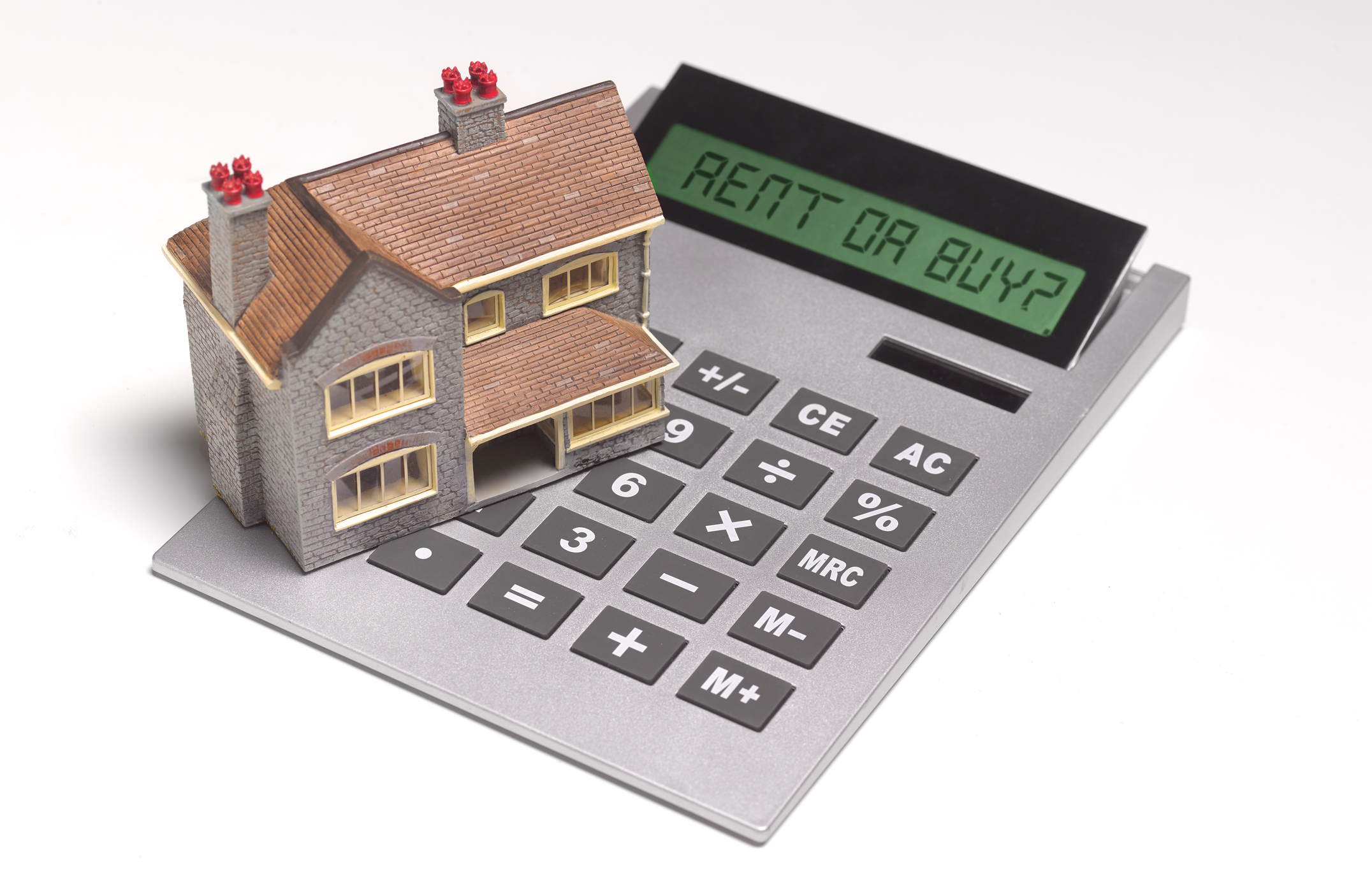How I Bought My First Home
Millennials came of age as the housing bubble burst and lenders put credit in a vise. Now we make up the largest group of home buyers.


Profit and prosper with the best of Kiplinger's advice on investing, taxes, retirement, personal finance and much more. Delivered daily. Enter your email in the box and click Sign Me Up.
You are now subscribed
Your newsletter sign-up was successful
Want to add more newsletters?

Delivered daily
Kiplinger Today
Profit and prosper with the best of Kiplinger's advice on investing, taxes, retirement, personal finance and much more delivered daily. Smart money moves start here.

Sent five days a week
Kiplinger A Step Ahead
Get practical help to make better financial decisions in your everyday life, from spending to savings on top deals.

Delivered daily
Kiplinger Closing Bell
Get today's biggest financial and investing headlines delivered to your inbox every day the U.S. stock market is open.

Sent twice a week
Kiplinger Adviser Intel
Financial pros across the country share best practices and fresh tactics to preserve and grow your wealth.

Delivered weekly
Kiplinger Tax Tips
Trim your federal and state tax bills with practical tax-planning and tax-cutting strategies.

Sent twice a week
Kiplinger Retirement Tips
Your twice-a-week guide to planning and enjoying a financially secure and richly rewarding retirement

Sent bimonthly.
Kiplinger Adviser Angle
Insights for advisers, wealth managers and other financial professionals.

Sent twice a week
Kiplinger Investing Weekly
Your twice-a-week roundup of promising stocks, funds, companies and industries you should consider, ones you should avoid, and why.

Sent weekly for six weeks
Kiplinger Invest for Retirement
Your step-by-step six-part series on how to invest for retirement, from devising a successful strategy to exactly which investments to choose.
After more than five years in the Washington, D.C., area, three apartments and eight roommates, I became a homeowner last summer. Sharing the rent with others had kept housing costs affordable, and I made several good friends along the way. But ultimately I craved the stability that would come from saying farewell to rent-hiking landlords, slapdash maintenance and the roommate revolving door. And I was excited to experience the benefits as well as the responsibilities of homeownership.
For a long time, millennials weren’t buying homes at the same rate as previous generations–largely because we came of age as the housing bubble burst and lenders put credit in a vise.
But if you’re unsure where a job, relationship or life may take you in the next few years, renting likely beats buying. You’ll also want to check out the buy-to-rent ratio in your area–that is, the median sale price of a home divided by the average annual rent for a similar one. In general, if the ratio is less than 15, the market favors buyers; more than 20 and it rewards renters. Ratios in-between can go either way, depending on taxes and the rate of appreciation. To assess your situation, use an online calculator, such as Trulia’s Rent vs. Buy Calculator.
From just $107.88 $24.99 for Kiplinger Personal Finance
Become a smarter, better informed investor. Subscribe from just $107.88 $24.99, plus get up to 4 Special Issues

Sign up for Kiplinger’s Free Newsletters
Profit and prosper with the best of expert advice on investing, taxes, retirement, personal finance and more - straight to your e-mail.
Profit and prosper with the best of expert advice - straight to your e-mail.
The mortgage grind. To qualify for a mortgage, your monthly housing expenses–including principal and interest, real estate taxes, homeowners insurance, and homeowners or condo association dues–usually can’t exceed 28% of your gross monthly income. For many millennials, that isn’t the biggest challenge; it’s coming up with the cash at the beginning. You can probably get a mortgage with a down payment of just 3% to 3.5% of the purchase price, but you’ll need an extra 2% to 4% of the purchase price to cover the appraisal, taxes and other costs you’ll have to pay to close the deal. If you put down less than 20%, you’ll need private mortgage insurance, which usually costs 0.5% to 1.5% of the loan amount each year.
I had been toying with the idea of buying for years, and I funneled as much cash as I could (from a raise and the extra money I had after paying off my student loans and moving to a cheaper apartment) into a savings account. To cover a shortfall, you may be able to borrow from your 401(k) or tap your IRA. Before I found my one-bedroom condo (two blocks from Metro!), I made sure I was preapproved for a mortgage. I have a strong credit history, so qualifying for the mortgage went smoothly. But lenders did put my finances under a microscope. I had to explain everything that was a little outside the norm, from a PayPal transfer to a reimbursement check from a work trip.
Help from Mom and Dad. Parents are often willing to extend a helping hand. The simplest strategy is for them to give you money to put toward your down payment or closing costs. Your lender will require a letter stating that the money is a gift, not a loan, since a loan from your parents increases your total debt, making it harder to get a mortgage. Alternatively, if your parents are comfortable putting their credit on the line, they can jointly apply for a mortgage as a “non-occupant co-borrower,” which means they have an interest in the property and can add cash of their own to the mix. My parents and I preferred the second option, but we had several conversations to outline a repayment plan and other specifics to make sure everyone was comfortable with the arrangement.
So far, homeownership is great. The biggest change? The amount of time–and money–I spend at the hardware store.
Profit and prosper with the best of Kiplinger's advice on investing, taxes, retirement, personal finance and much more. Delivered daily. Enter your email in the box and click Sign Me Up.

-
 How to Turn Your 401(k) Into A Real Estate Empire
How to Turn Your 401(k) Into A Real Estate EmpireTapping your 401(k) to purchase investment properties is risky, but it could deliver valuable rental income in your golden years.
-
 My First $1 Million: Retired Nuclear Plant Supervisor, 68
My First $1 Million: Retired Nuclear Plant Supervisor, 68Ever wonder how someone who's made a million dollars or more did it? Kiplinger's My First $1 Million series uncovers the answers.
-
 How to Position Investments to Minimize Taxes for Your Heirs
How to Position Investments to Minimize Taxes for Your HeirsTo minimize your heirs' tax burden, focus on aligning your investment account types and assets with your estate plan, and pay attention to the impact of RMDs.
-
 When Renting Is Smarter Than Buying
When Renting Is Smarter Than Buyingreal estate There are some situations when renting is smarter than buying. You're not necessarily throwing your money away when you rent.
-
 Rent vs. Buy: Sometimes Renting is Better
Rent vs. Buy: Sometimes Renting is BetterPersonal finance experts have long held that homeownership is a key step to building lasting wealth. How does that hold up in a pricey real estate market?
-
 Keep Moving Costs in Check
Keep Moving Costs in CheckMaking Your Money Last If I've learned anything, it's that moving is almost always more costly and time-consuming than I anticipate.
-
 How to Negotiate a Break on Rent
How to Negotiate a Break on RentHealthy Living on a Budget The downward trend in rents has me thinking it's time to ask my apartment manager to reduce my rent.